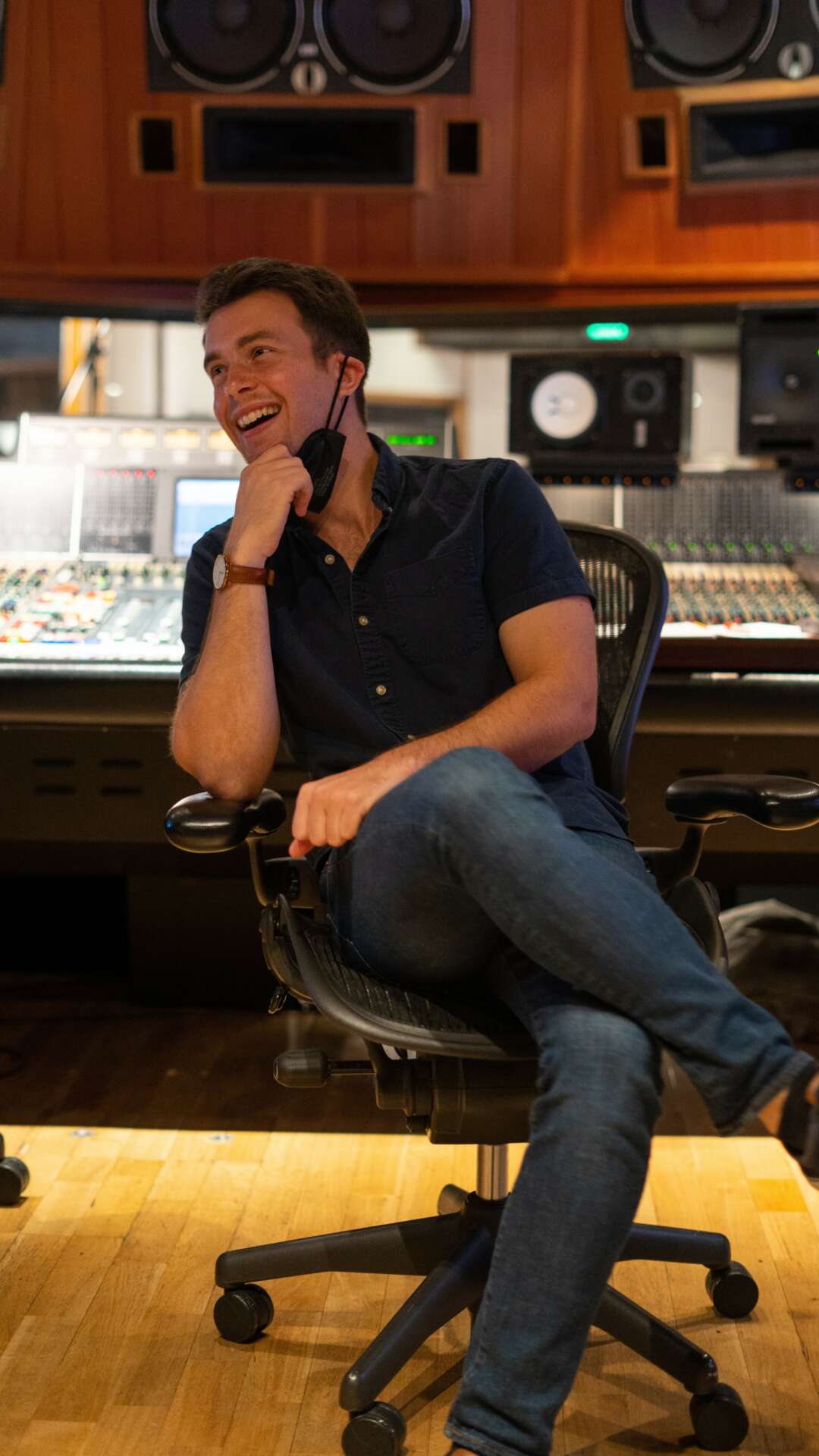We caught up with the brilliant and insightful Forrest Gray a few weeks ago and have shared our conversation below.
Alright, Forrest thanks for taking the time to share your stories and insights with us today. We’d love to hear about the things you feel your parents did right and how those things have impacted your career and life.
I’m pretty sure that I detailed the ways in which my parents fostered my creativity at a young age in a previous interview, but it’s such an important subject that it never hurts to expand on it further. Something my parents did really well was take a back seat to my hobbies, letting them arise organically, then aggressively pursuing lessons, workshops, etc to further cultivate the hobby. I had a series of these. It was chess, then acting (I actually made it into the final round of auditions for Noah Baumbach’s The Squid and the Whale), and then finally music. But the point is that every hobby of mine was preceded by a natural affinity, then followed by a plan of action from my parents, not the other way around. It’s a very careful dance when it comes to these things. I knew classical musicians in undergrad who had existential crises relating to their instrumental studies because it was something that was chosen for them at a very young age.
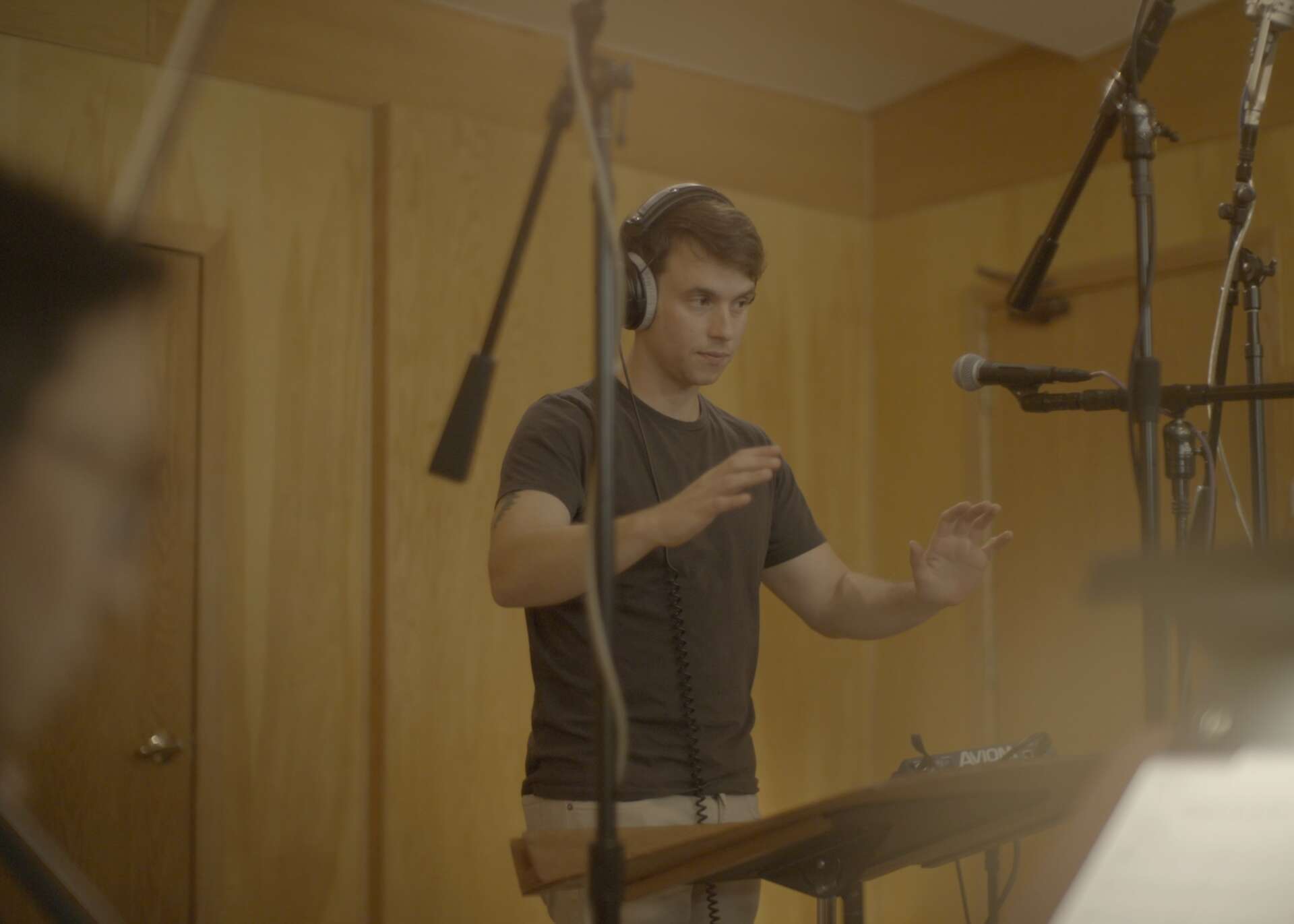
Awesome – so before we get into the rest of our questions, can you briefly introduce yourself to our readers.
I’ve been a composer working in LA since graduating from USC’s Scoring for Motion Picture and Television program 8 years ago. After USC, I was asked to participate in the 2015 Sundance Composer Lab, the connections from which established the foundations of my career. After Sundance I hopped around from one ghost-writing/additional music gig after another, before working for composer Kris Bowers starting in 2019, with whom I wrote music for the Kobe Bryant audio book, The Wizenard Series, season 3 of Netflix’s Dear White People, and season 1 of Netflix’s Bridgerton. Bowers was also a Sundance fellow in 2015, and we stayed int touch ever since. While working for Bowers, music editor Adam Smalley, who was a judge for the Sundance Lab, reached out to me about an additional composing opportunity for Carter Burwell on his first foray into series television. That series turned out to be Apple TV+’s The Morning Show, which I’ve now worked on 3 seasons of, in the capacity of additional composer. I’ve also written music for Burwell’s score to season 1 of Netflix’s Space Force, and the upcoming Paramount+ film, Finestkind.
My work with Burwell has led to my writing original songs for Apple TV+’s Pretzel and the Puppies, as well as a feature film of my own that received critical acclaim in Ireland, and just had a theatrical release in the US last month. The film is titled Barber, and stars Aidan Gillan, who Game of Thrones fans will recognize as Petyr “Littlefinger” Baelish.
If I had to say which work I’m most proud of, it’s my work for Burwell. Burwell is an absolute master of the craft, and preternaturally observant when it comes to interpreting drama, so everything I write for him is brought to that level of detail and emotional depth once he gets his hands on it.
When it comes to problem solving for my clients, so much of the work I, we, do as a composer(s) comes down to helping serve the film when so much of the film-making elements are already set in stone. Acting, production design, lighting- those elements are all but immutable by the time a composer gets their hands on the film. Just recently I scored an indie film shot in Paris, where the opening scene is a 3 minute, dialogue-less, sequence of the protagonist walking. The director tried everything from attempting to license a song, to pulling cues from every pop-synth score under the sun, but nothing worked. We must have gone through 11 or 12 versions before I wrote something at the 11th hour that just- I’m happy to report- worked! And that’s the job. They were happy with 99% of the score, and we even locked in music for the opening scene a week before we locked, but on the mixing stage they had a change of heart, and at the end of the day a composer has to be there and deliver for those last-minute requests.

How can we best help foster a strong, supportive environment for artists and creatives?
God, I really hope I don’t sound too much like a curmudgeon here- I say this all from a place of concern- but I think we’ve allowed too much space for the devaluing of art. I’d liken it to the option-drag function for a file on your computer; zero thought goes into creating an exact copy of something, and almost no labor is required to do so. I feel like some version of that ease, which engenders a kind of disengagement, has infected the very ethos of art consumption.
Music in particular lacks an intentionality in almost every facet of our daily lives now that it can be copied and pasted. When I go on Instagram, I’m not just recommended a slo-mo video of a shark breaching off the coast of South Africa, but one that’s accompanied by the same club remix I just heard on 30 other recommended reels. Did that video need to provide a sugar rush to two senses? Would a video of a shark without music have been just as entertaining? Music, and all art for that matter, should be engaged with meaningfully, and we’ve turned it into a thing that saturates our daily lives, and as a result has very little, or less, meaning. I can’t help but feel that we composers encounter the trickle-down effects of this when it comes to music creation: what it costs to create something of value both in monetary and labor terms.
I understand that the point of this question is to detail the ways in which individuals, or society writ large, can support the arts, but unfortunately, outside of patronage models, we need thriving institutions to instigate cultural shifts, and when social media is the medium through which so many of us engage with the things we deem art, we start to treat art as an endlessly replicable thing that can be engaged with noncommittally and dismissed the second it loses our attention. How can that habit, practiced by millions every day, not spill over into other practices? And I’m not immune to these habits. I critique it because I resent it what for it’s done to my relationship with art.
Don’t get me wrong, social media has done wonders for independent artists, who’ve cultivated loyal fan bases to support their artistic vision, thanks almost entirely to the democratized models of apps like Instagram and Youtube. I think that’s wonderful, and we should all do more of that. On the flip side, however, I’ve heard of start-ups looking to break into the streaming space by producing series that are essentially marketing ploys in search of content. It’s this obscuring of the line between art and social media fare that I have a problem with. We throw it all into the bucket of “content” but one of these things is not like the other, and social media casts a fog over what’s what.
So, yeah, I guess what I’m saying is “bah humbug” and that the onus of creating a culture that values the arts is incumbent on us as individuals sometimes. Pick your moments to sit with a piece of art- try to be wholly attentive. Support local artists by going to their shows, buying their art, etc. When an artist you love releases an album, or a new film, try to find the time to listen to, or watch, the whole piece from start to finish without doing anything else. Try going to a concert, or any performance, and not filming excerpts of it on your phone. What would it be like to just be there and recount the experience to friends without a visual aid? What would it be like to be left with nothing but the impressionistic qualities of a piece of art, as opposed to documenting it with a high-fidelity device that does all of the work for you in preserving the art objectively as opposed to the feeling the piece left you with? These are things worth considering in our daily practices. One is a prescription for patronizing the arts and the other a prescription for engendering a heightened engagement with the arts; both are vitally important, and go hand in hand.
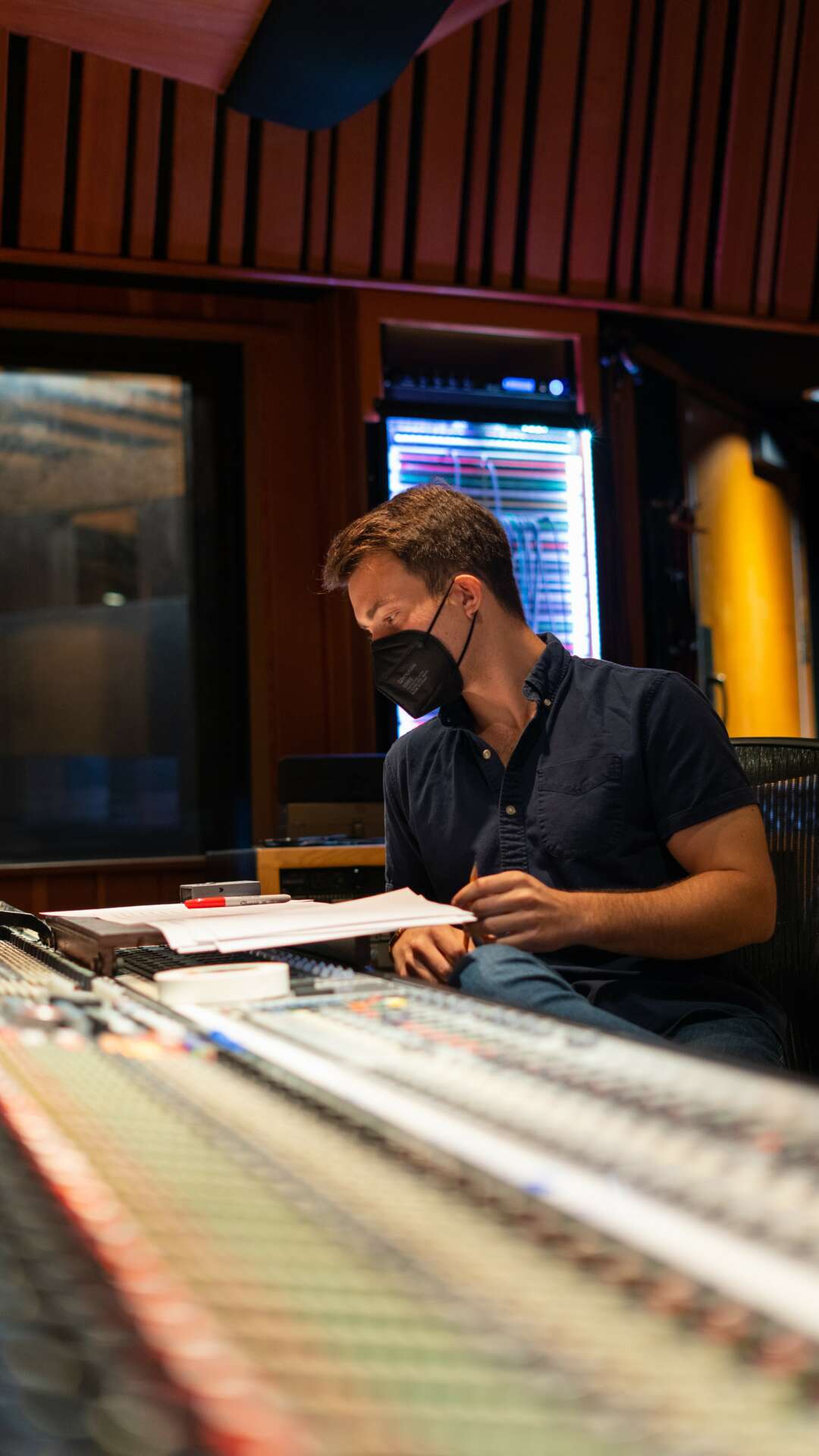
Is there something you think non-creatives will struggle to understand about your journey as a creative? Maybe you can provide some insight – you never know who might benefit from the enlightenment.
I think the hardest part of being a freelance creative when you’re starting out is charting your own course. In a gig economy, this practice is becoming more common for creatives and non-creatives alike. When I was in grad school, the most common question posed to guest speakers went something like, “what’s the best path for a young composer after graduating?” Invariably, every speaker said some version of, “there is no one path”, which is to say, “that’s for you to figure out.” As if building up faith in your abilities as an artist wasn’t challenging enough, you’d soon be expected to invest equal, if not greater faith, in your ability to intuit the right paths as you moved through your career.
The sense that you’re alone often presents itself very acutely during those periods of wandering. This can eventually lead to a situation wherein you have no firm border between your work life and home life, because any idle hours could in theory be best spent by sprucing up your website, writing a new piece of music to fill out your reel, or any number of micro tasks that allay your anxieties about not working hard enough to ensure success in your career.
These are things to overcome, to be sure, and the benefits of being a successful creative far outweigh the struggles to get there, but the loneliness of the journey can be hard at times. Without a corporate structure, or robust community to support you in your day-to-day, it can often feel like you’re getting nowhere in your career.
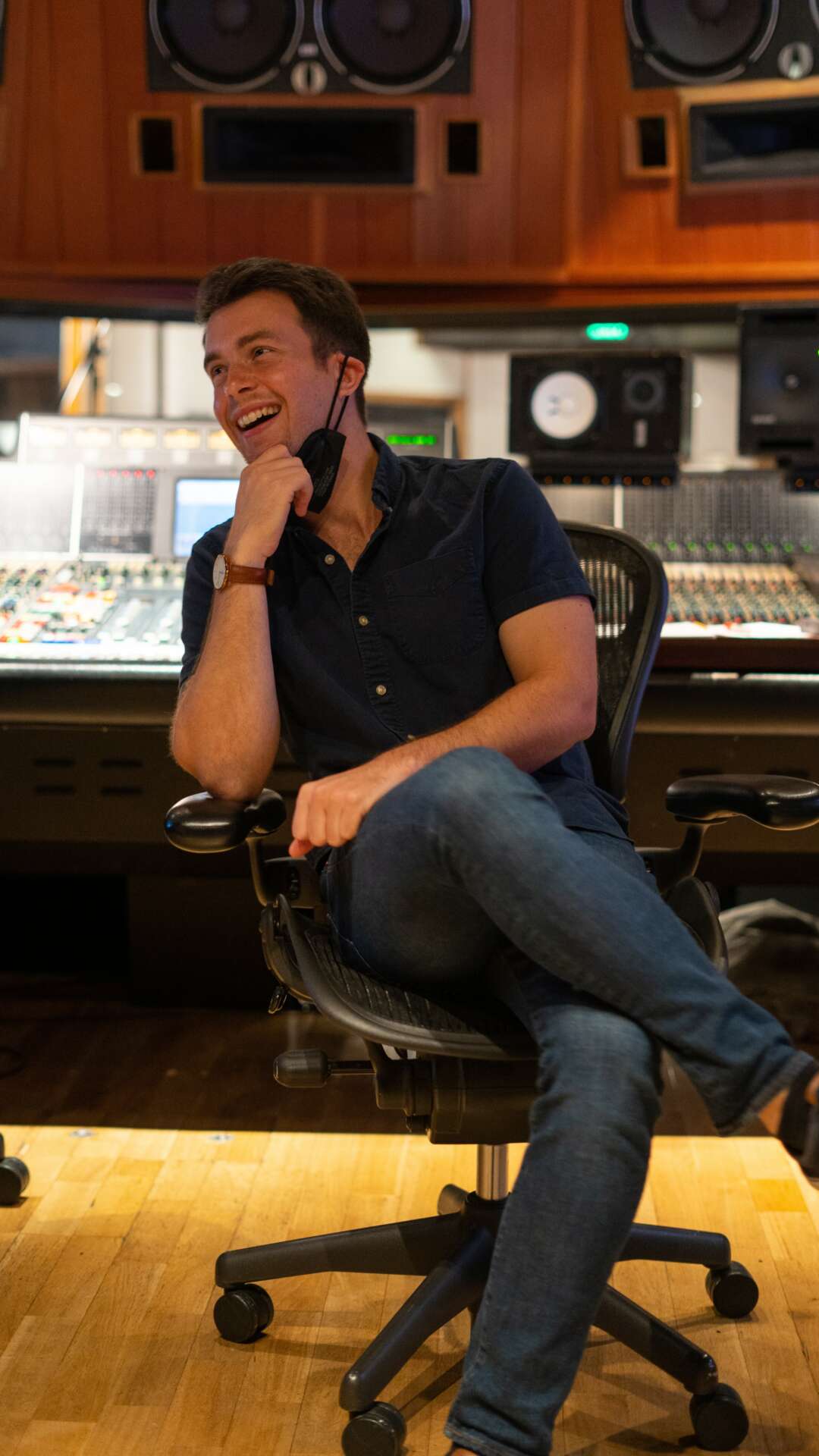
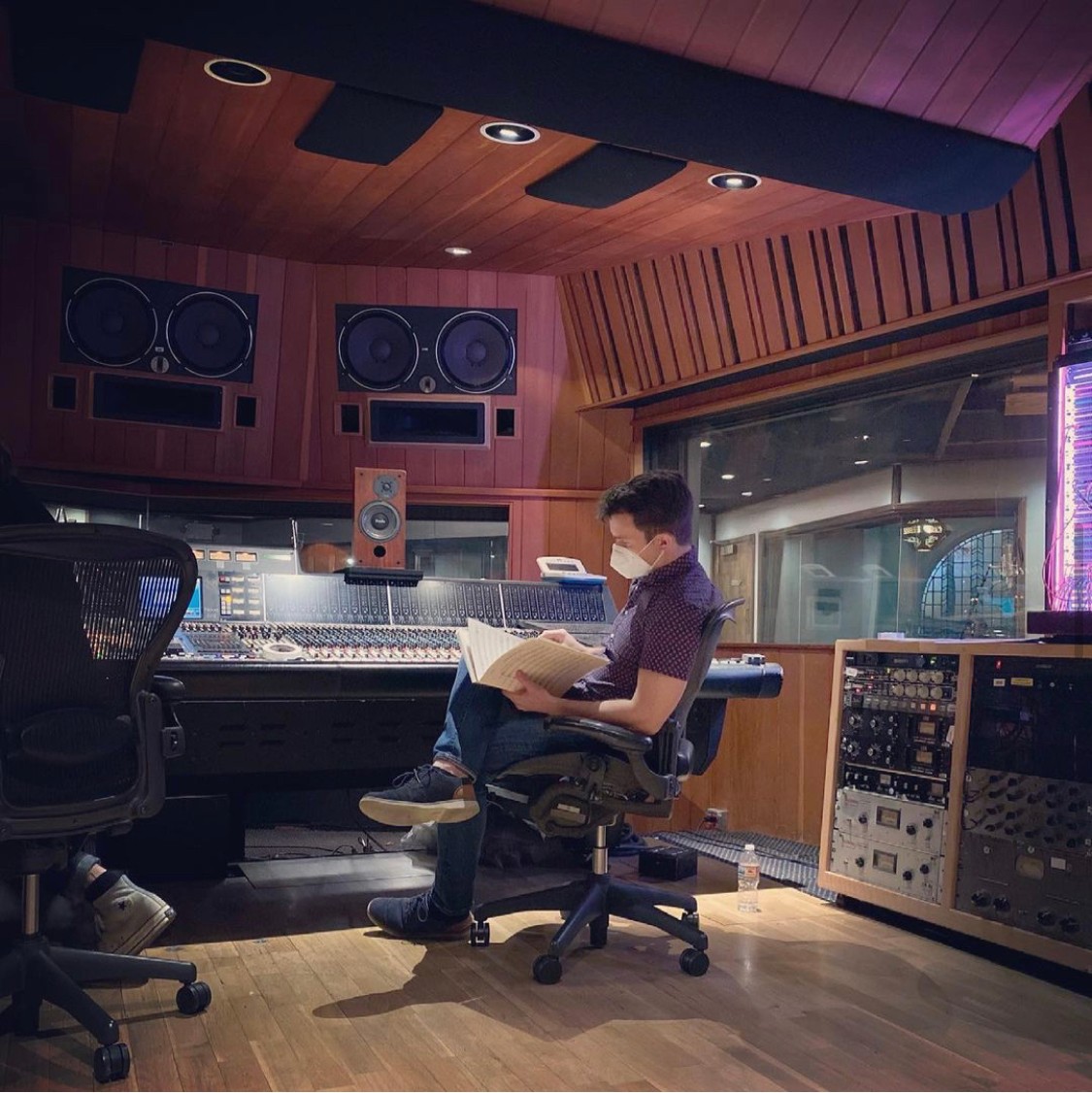
Contact Info:
- Website: www.forrestgraymusic.com
- Instagram: https://www.instagram.com/forrestgraycomposer/
- Youtube: @forrestgray3528
Image Credits
Jackson Hyland Lipski J Lee Glassburn JC Olivera


